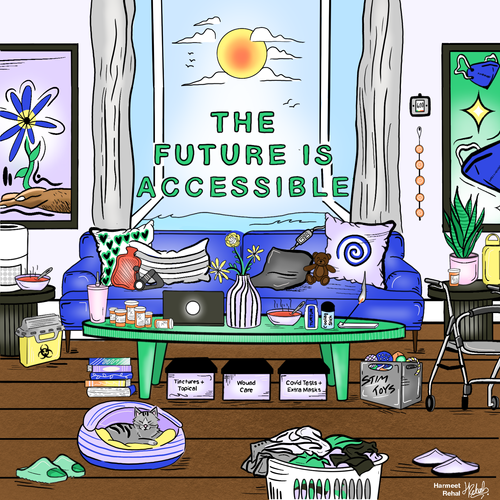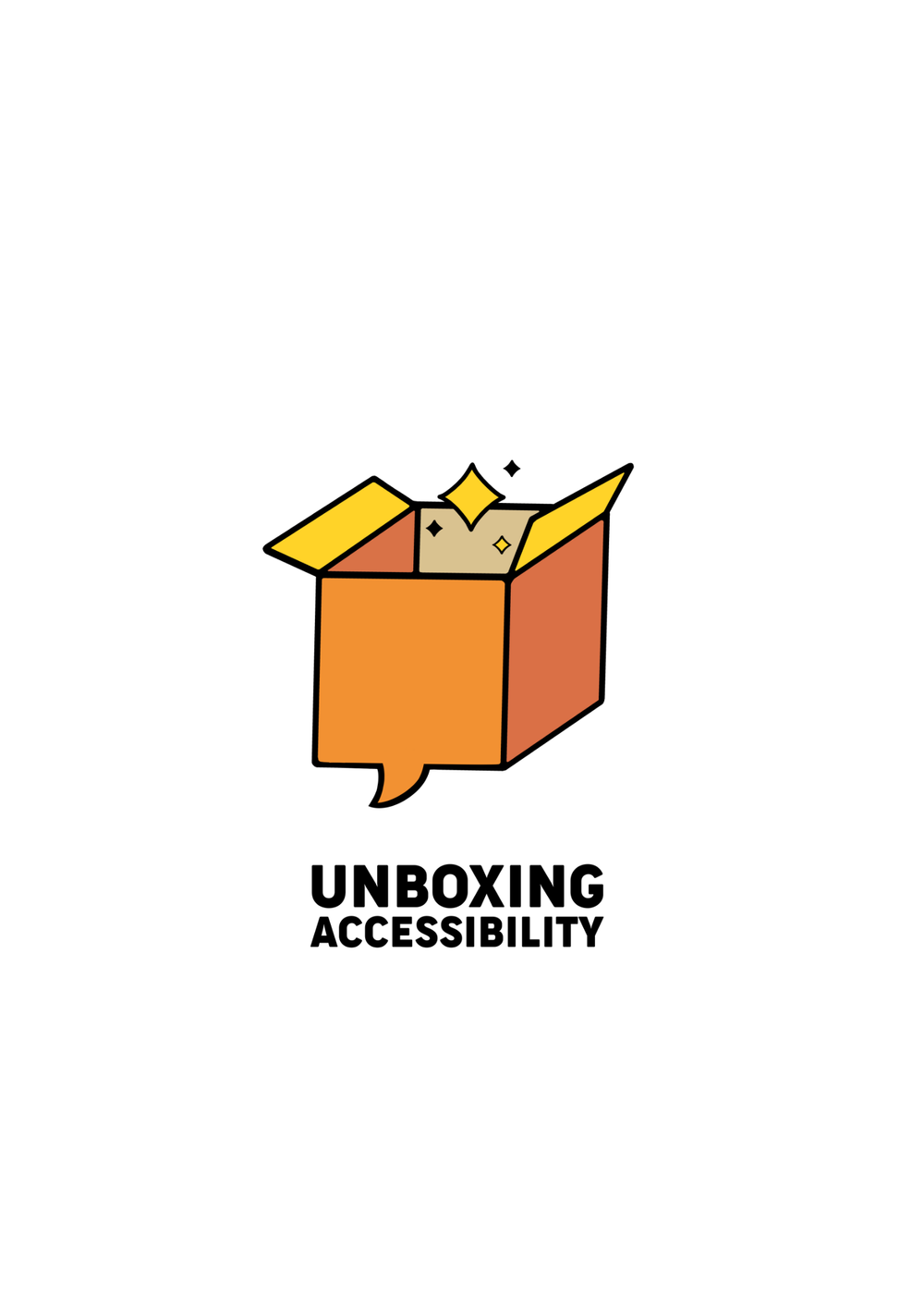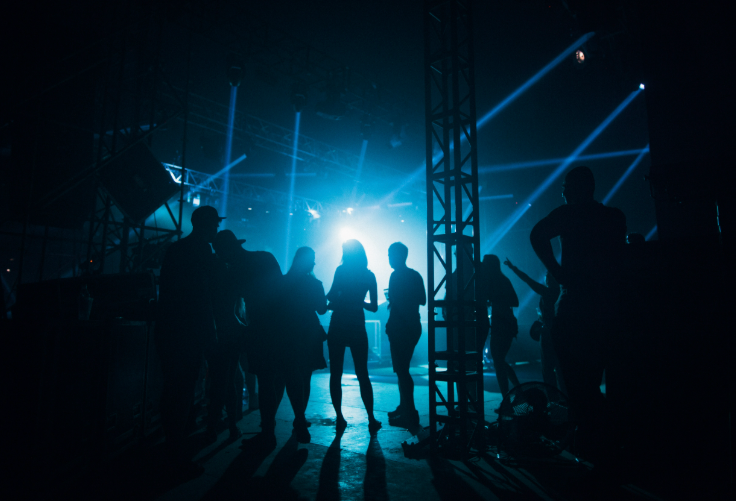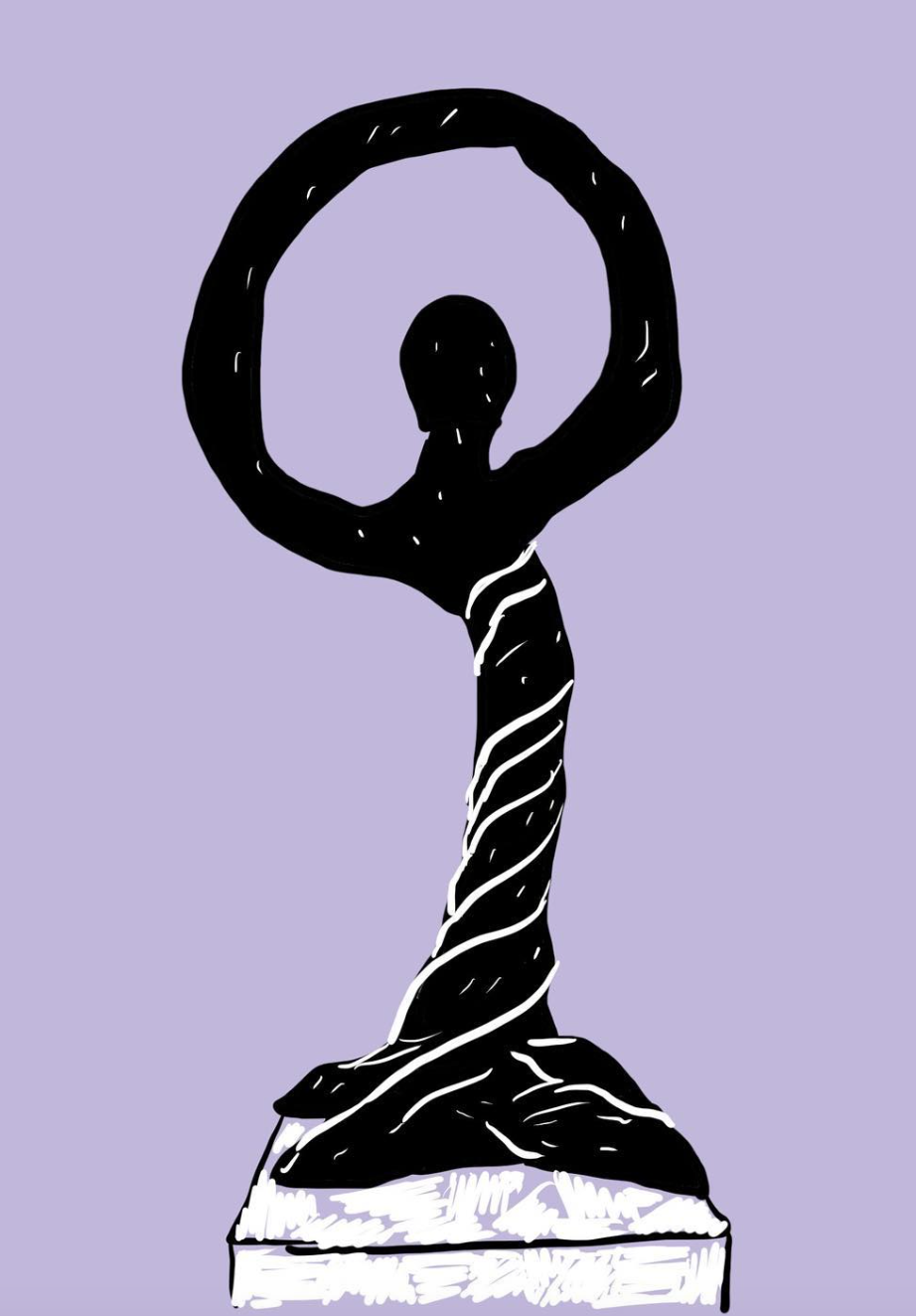Dear Emily,
this is a great question.
Aside from the ignorance and ableism I faced, I had a great time.
I attended the School of the Art Institute of Chicago twice. Once from 1995-2000 and again from 2010-2013 after which I finally grabbed my BFA. My focus was on sound composition and design, video art, and new media.
My instructor and TAs in the mandatory visual art history courses I took did not understand that describing an image would help me appreciate what they were trying to teach me. They floundered and shrugged when I asked for a little accommodation. Because of this I kinda lost respect for them.
I could never understand why visual artists aren’t taught how to describe their art when learning how to talk about it or present in critiques. Giving the artist an opportunity to talk more about their practice and even the cool nuances and process seems like a great way of helping them understand what they're doing and honing their skills for discussing their work in general.
Instead of taking a final exam for the Modern Art class, I wrote a paper about the collaborative museum visit. They wanted me to do slide comparisons for crying out loud. They couldn’t understand why it was offensive that they’d even ask!
If you can’t describe the work you teach and hold in the highest regard, then why the hell should I make space for it in my buzzing brain?
My essay had a bunch of passive-aggressive comments about ocular-centrism and art academia and the jabs didn’t go unnoticed. The fact that I got under the skin of the prof. meant the world to me.
Since that experience, I’ve been thinking more and more about access for blind folks. It took my lived experience to take it more seriously and figured out that accessibility itself can be art.
In 2018, I started describing my sound-based art in a way I hoped would give some kind of access to d/Deaf and hard-of-hearing folks as well as to those who would choose to not want to hear the work.
I started my experiments with sound descriptions, things that went beyond captions, or at least what I think captions are. I can’t read them.
It's been a fun and weird ride and I’m adjusting my concepts all the time based on the feedback I get. Like a poetic and somewhat subjective image description–which I love–I create adaptations of my compositions that can exist by themselves if not as a companion to the sound piece.
So, long story short, I had a great time expanding on my already solid time-based practice, but it was the initiation of all my creative access ideas that truly shaped the work I have done since.
Now, I visit at least two classes each semester to talk about my work. Access has become a big deal since I got that BFA and I’m happy that my alma mater calls on me to lay it all out for them.
Your friend ‘til the end,
Andy








